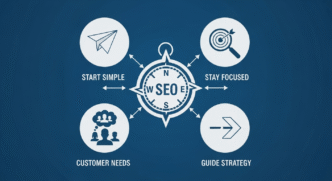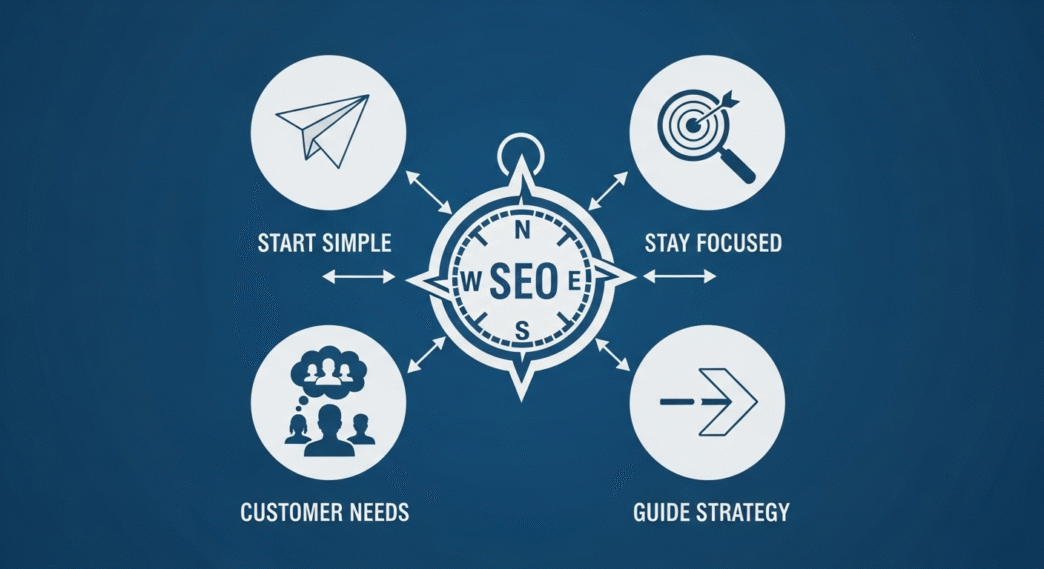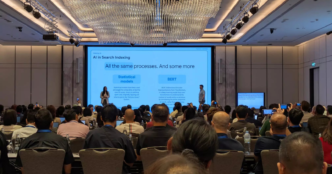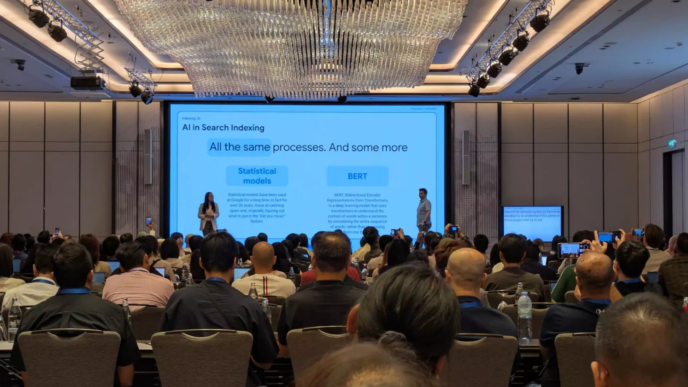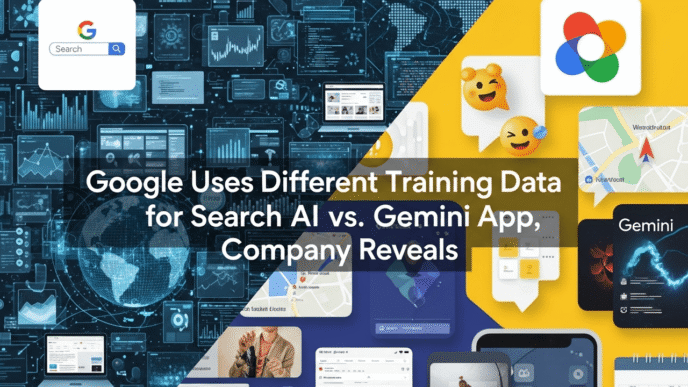Table of Contents
ToggleExecutive Summary
SEO Blueprint Small Businesses Need: Google Advocates Reveal Simple Fundamentals Over Technical JargonIn a revealing podcast episode, Google Search Advocates John Mueller and Martin Splitt pulled back the curtain on what small businesses really need to know about SEO—and it’s far simpler than the industry wants you to believe. Their message: forget the technical jargon and expensive promises. Focus on fundamentals that actually drive customers through your door.
The Core Revelation: Purpose Before Process
“What is the goal of your website?” This single question, posed by Mueller, cuts through the SEO noise that paralyzes small business owners. The Google advocates emphasize that successful SEO starts not with technical tweaks, but with crystal-clear business objectives.
The Food Truck Test
Splitt uses a compelling example: a food truck owner who creates a website but fails to include basic information like menu items, location, or operating hours. This scenario highlights a fundamental disconnect—businesses often focus on having a website rather than making it useful for customers.
The Three-Pillar Framework for Small Business SEO
Based on the Google advocates’ discussion, successful small business SEO rests on three foundational pillars:
1. Customer-Centric Content Strategy
Key Insight: “Ask your existing customers how they found you.”
The advocates recommend a refreshingly simple approach to content strategy:
- Survey current customers about their search behavior
- Test searches yourself to understand the competitive landscape
- Be “brutally honest” about ranking possibilities
- Focus on local, specific terms rather than broad competition
Real-World Application: Instead of trying to rank for “restaurant,” target “bookstores in Zurich” or location-specific searches where competition is manageable.
2. Technical Foundation (Keep It Simple)
Mueller’s Assessment: Most small businesses using common CMS platforms already have adequate technical foundations.
The Simple Test: Search for your business by name and domain. If results appear, your technical setup is likely sufficient.
Recommended Platforms:
- WordPress
- Wix
- Squarespace
- Other mainstream CMS options
Why This Matters: The advocates dismiss the myth that small businesses need complex technical SEO. Focus energy on content, not code.
3. Measurement and Iteration
Timeline Expectations:
- Week 1-2: Simple changes (like title updates) become visible
- Month 1-3: Strategic changes show measurable impact
- Ongoing: Regular monitoring through Search Console
Critical Tools:
- Google Search Console (essential for tracking search performance)
- Analytics platform for conversion tracking
- Direct customer feedback mechanisms
The Agency Decision Matrix
When to Stay DIY
- Limited budget with sufficient time
- Simple local business model
- Comfortable with basic content creation
- Can measure and track results independently
When to Hire Professional Help
Mueller’s criteria for bringing in SEO expertise:
- Measurable ROI: You can demonstrate concrete business value from SEO efforts
- Time Constraints: SEO becomes a bottleneck for other business activities
- Complexity: Your business model requires sophisticated SEO strategies
Red Flags in SEO Hiring
Critical Warning: Avoid any SEO who promises specific rankings or traffic numbers. As Mueller emphasizes, “They can’t manually go into Google systems and tweak the dials.”
The AI Reality Check
Addressing growing concerns about AI’s impact on search, Mueller provides reassuring perspective:
Why Websites Still Matter:
- AI responses often rely on existing web content
- E-commerce and service transactions require direct website interaction
- Local businesses benefit from AI mentions, but need web presence as foundation
- Complex products/services can’t be replaced by chat responses
Bottom Line: AI enhances rather than replaces the need for solid web presence and SEO fundamentals.
Actionable Implementation Roadmap
Week 1: Foundation Assessment
- Define specific website goals and conversion metrics
- Test basic site visibility (search by name/domain)
- Set up Google Search Console
- Audit current content for basic business information
Week 2-4: Customer Research Phase
- Survey existing customers about discovery methods
- Identify primary search terms customers actually use
- Test competitive landscape for realistic target keywords
- Document content gaps and opportunities
Month 2: Content Implementation
- Create/update pages targeting identified search terms
- Ensure all basic business information is prominent and accurate
- Implement changes gradually to monitor impact
- Begin regular monitoring routine
Month 3+: Optimization and Growth
- Analyze Search Console data for insights
- Iterate based on actual performance data
- Consider professional help if ROI justifies investment
- Expand successful strategies
Key Resources Mentioned
Essential Reading:
- Google SEO Starter Guide
- Google Search Essentials (formerly Webmaster Guidelines)
- “How to Hire an SEO” help article
Video Learning:
- “SEO for Beginners” series (featuring Cherry)
- “SEO Made Easy” episodes (Martin Splitt)
The Bottom Line
Google’s own advocates deliver a surprisingly accessible message: effective small business SEO isn’t about technical wizardry or expensive agencies. It’s about understanding your customers, creating useful content, and measuring what matters to your business.
The most powerful takeaway? Start simple, stay focused, and let customer needs guide your SEO strategy. Everything else is just noise.
This analysis is based on the “Search Off the Record” podcast episode featuring Google Search Advocates John Mueller and Martin Splitt, providing rare insider perspective on practical SEO for small businesses.
Related posts:
- How Internet Standards Are Made: A Google Engineer’s Guide
- Google Removes SEO Reference Local Ranking Documentation: What This Means for 2025
- Google Declares “Past SEO Success No Longer Guarantees Future” as Gen Z Drives Search Revolution
- Reddit Pro Tools Launch: New Features for Publishers Unveiled

